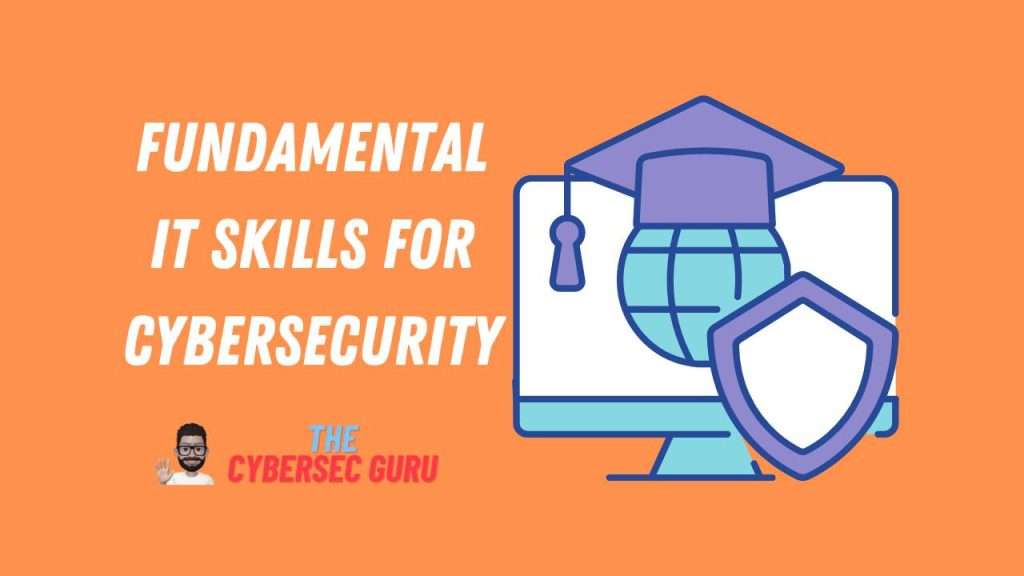It is impossible to overestimate the critical relevance of cybersecurity in the hyperconnected world of ours. The need for qualified cybersecurity experts has reached hitherto unheard-of heights as digital data grows exponentially and cyber threats get more sophisticated. Learning basic cybersecurity skills is like finding priceless jewels in the digital sphere, just as a miner gingerly negotiates a dangerous minefield in pursuit of gold.
Understanding the Complexity of the Digital Minefield
The digital terrain is a multifarious one full with always changing cyber hazards. From clever phishing scams and insider threats to sneaky malware and ransomware attacks, cybersecurity experts have a varied and complex job. Effective navigation of this minefield requires a thorough awareness of its complexity and subtleties.
Core Skills for Cybersecurity Professionals
- Networking Fundamentals: Cybersecurity experts really must have a strong basis in networking. Identification of vulnerabilities and possible security breaches depends critically on knowledge of network protocols, understanding of data movement across networks, and capacity to examine network traffic.
- Proficiency in Operating Systems: In the field of cybersecurity, thorough understanding of operating systems (OS) is absolutely basic. Whether Windows, Linux, macOS, or another platform, properly safeguarding systems and networks depends on knowing their underlying architecture, security mechanisms, and weaknesses.
- Cybersecurity Tools Mastery: Cybersecurity specialists really must be familiar with a wide spectrum of tools. From basic tools like firewalls, antivirus software, and intrusion detection systems (IDS) to sophisticated penetration testing tools like Nmap, Wireshark, and Metasploit, knowledge in using these tools is very vital for threat detection, analysis, and mitigating.
- Security Fundamentals: Effective cybersecurity tactics are mostly dependent on a strong awareness of security principles like cryptography, access control, security policies, risk management, and safe coding standards. Development of strong defense systems against cyberattacks depends on mastery of these ideas.
- Incident Response and Forensics: Cybersecurity experts must first be quite skilled in incident response and digital forensics. This skill set includes the capacity to properly manage security events, investigate data breaches, evaluate digital evidence, and apply remedial actions to minimize the damage of security events.
- Continuous Learning and Adaptation: A dynamic field marked by fast development and ongoing innovation is cybersecurity. Maintaining ahead of cyber attackers requires constant learning and adaptation to be current with the newest threats, technology, and industry best practices.
Cultivating These Skills
Education and Certifications
Pursuing formal education in cybersecurity, computer science, or allied disciplines gives people a disciplined knowledge of fundamental ideas and principles. Certifications accepted by the industry like Certified Information Systems Security Professional (CISSP), Certified Ethical Hacker (CEH), CompTIA Security+, and others confirm knowledge in particular fields and improve professional credentials.
Hands-on Experience and Projects
Practical exercises, labs, and real-world projects help to close the distance between academic knowledge and actual application. Participating in capture-the- flag (CTF) contests, working on safe coding projects, and performing vulnerability analyses all help to greatly increase cybersecurity practice skills and competency.
Networking and Collaboration
Cybersecurity communities, conference attendance, and industry professional networking present priceless chances for knowledge exchange, mentoring, and career progress. Working on research projects or supporting open-source security solutions with colleagues helps to build a cooperative and always improving culture inside the cybersecurity field.
Continuous Professional Development
Essential elements of ongoing professional development for cybersecurity experts are keeping current with the newest cybersecurity trends, going to webinars, reading industry publications, and pursuing advanced certifications. Focusing in specialized fields like ethical hacking, IoT security, or cloud security will help one stand out in the always changing field of cybersecurity.
Conclusion
Having basic IT knowledge is like finding valuable jewels among the huge amount of data and hazards in the digital minefield of cybersecurity. The rock solid defenders against changing cyber threats are cybersecurity experts with a strong background in networking, operating systems, cybersecurity tools, incident response, and a lifetime of learning dedication.
At The CyberSec Guru, we understand the vital need of developing these fundamental abilities and supporting an always growing and adaptable culture. People can strengthen their defenses and help to create a safer and more secure digital ecosystem by keeping educated, working with colleagues, and aggressively seeking professional growth chances.
The most powerful weapons in the hunt for cybersecurity excellence are knowledge and abilities. Come explore the digital minefield with us and help us to ensure a better digital future for all.
Stay alert and safe! Working together, we can overcome the difficulties presented by the always changing terrain of cybersecurity.







